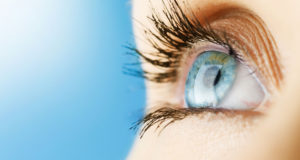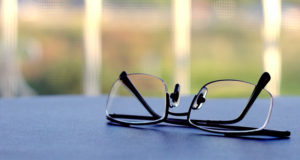How many of us have been told that if we cross our eyes too long, they are going to stay that way? While many of us figured out early on that this was a myth (perhaps to the displeasure of our parents), there are several other eyesight myths that are still widely believed.
Here are 5 common myths and real truths about eyesight.
The Myth: Squinting Causes Vision Loss
The Truth: While this myth may have been started with the same intentions as the one that started the cross-eyed myth, many people believe that it causes vision loss. Squinting is a bodily response that is used to filter light or enhance focus. While the squinting is occurring, a person’s vision is actually improved. Although squinting does not cause vision loss, it is often an indication that a person’s vision is impaired. If you find yourself squinting often to see clearly, it may be time to get your vision checked.
The Myth: Sitting Too Close to the TV is Bad for Your Eyes
The Truth: Again, many of us have heard our mothers yelling from the other room, “Don’t sit so close to the TV!” It makes sense that sitting close to the TV for a long period of time can make our eyes feel droopy and tired. But there is no evidence that it harms your eyesight. When we are young, our ability to focus on objects close to us is heightened, so it may actually be more comfortable for children to sit close to the TV.
The Myth: Reading in Dim Light Can Damage Your Eyes
The Truth: Similar to watching TV from a close distance, your eyes may feel tired after reading in a dim light for too long. But again, there is no evidence that it can cause long-term negative effects to the eyes.
The Myth: Vision Loss is Inevitable with Age
The Truth: Many vision problems that develop as people age can be treated. Presbyopia, which is near-vision loss, and cataracts can both be reversed to allow adults to see clearly again. It is important to have eye exams on a yearly basis to catch both reversible and permanent threats to vision, such as glaucoma and macular degeneration. Oftentimes, early treatment can restore clear vision.
The Myth: Eating Carrots Can Improve Your Vision
The Truth: Vitamin A is essential for the body to maintain good eyesight, and carrots have high amounts of Vitamin A. But the body only needs a relatively small amount of Vitamin A for vision, and it can be obtained through many different sources. Loading up on carrots every day isn’t going to give you perfect eyesight or improve your night vision.



